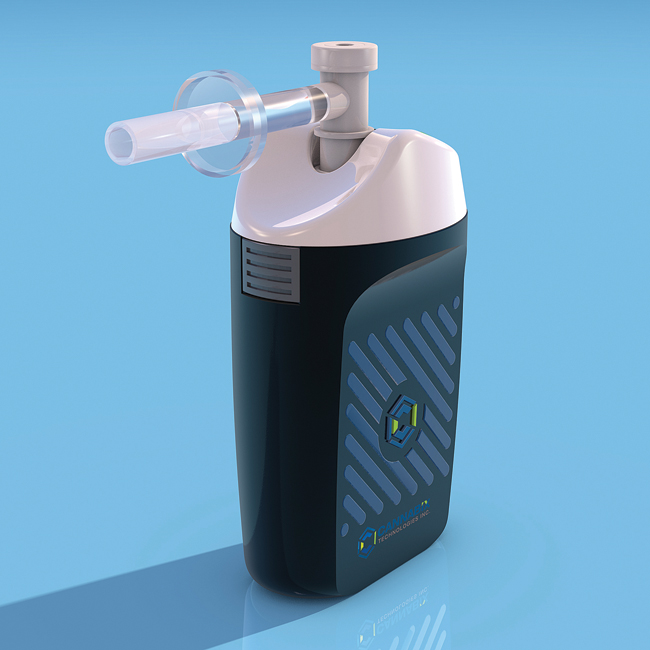Police may soon be armed with marijuana breath test

Six months after New York State lawmakers voted to legalize marijuana use for medicinal purposes — and as pot laws become more relaxed across the U.S. — the availability of a breath analysis test to help determine if drivers are under the influence is that much closer.
Researchers with a Canadian company called Cannabix Technologies Inc. say they have the technology for a THC detection test that’s similar to an alcohol breath test. And local law enforcement officials say such a device, once available, will be a welcome addition to an officer’s tool belt. Currently, officers who believe a driver is under the influence of the mind-altering drug have no option but to pursue blood testing to determine the presence of THC, so results are not immediate and often require a warrant.
“I think it would definitely be helpful as a roadside test, but just like with alcohol, you still need to bring someone back to headquarters and get results you can prosecute them on,” said Southold Police Chief Martin Flatley.
To justify taking a person back to headquarters, officers currently rely on field observations, such as seeing or smelling marijuana.
“If someone was smoking marijuana, usually it has such a strong odor that it is really pretty easy for officers to identify,” he said. “But any tool like that, that helps us to identify an impairment, is useful.”
Cannabix president Kal Malhi, a retired member of the Royal Canadian Mounted Police, said development of the breath test began in April 2013, thanks in part to a number of police officers who invested in the idea.
“When medicinal use made it more readily available and recreational legalization made it more socially acceptable, we believed there needed to be a tool available to address driving or workplace needs,” Mr. Malhi said.
The test, which is administered in the same fashion as an alcohol breath test, can detect THC for up to two hours after marijuana use — no matter how it is ingested, as the lungs will eliminate THC over a two-hour period, he explained.
The current test cannot quantify the amount of the chemical, though the company said that is the next step in advancing the technology.
“While blood is accurate in getting the THC content, for police or a workplace to do a blood sample — it is a very invasive process,” Mr. Malhi said. “Police need the help of a medical professional and it is a lengthy process — and most emergency rooms are already busy.”
Mr. Malhi said the goal is to make the device available to police departments for around the same price as current alcohol breath tests, between $800 and $1,200.
He said Cannabix is currently waiting on a number of patents for the technology and expects prototypes to become available in February.
Riverhead Police Chief David Hegermiller said he was happy to hear a tool is in the works, adding that combining it with available breath analysis technology to test for both THC and alcohol at once would be even more efficient for officers in the field.
The 24-page Compassionate Care Act, signed into law by Gov. Andrew Cuomo in July, makes New York the 23rd state in the country to allow the sale of medical marijuana, which will be available only in edible and vaporized form. The legislation establishes a registry process and requires patient ID cards for those seeking to use marijuana. The state’s department of health now has 18 months to develop guidelines regulating dosage amounts.
Evan Nison, a co-founder and director of the New York Cannabis Alliance, said, “We certainly want to make sure that people who are driving too drunk, high or tired are not behind the wheel, and this is taking a step towards that.”
He said the THC detection technology will help “bring comfort to the general population and also make sure people who are impaired aren’t driving — and that those who do are held responsible.”
Mr. Nison said as long as the regulatory processes that come along with the technology are fair, the availability of a curbside test is a positive step toward the legalization of marijuana.
“A majority of New Yorkers, they support legalization but those numbers could go up even further if there is that comfort there,” he said.





